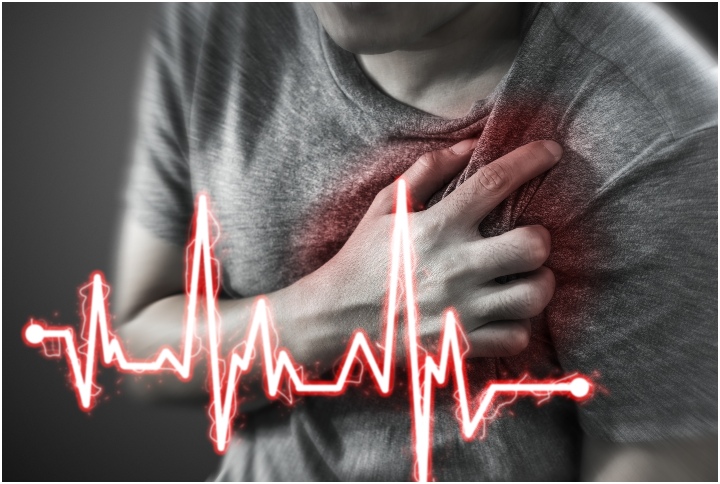With the recent shocking loss of Singer and artist KK, we realize that life is too short. And to avoid these kinds of sudden losses it is imperative to be on top of one’s health. A number of health conditions, as well as one’s lifestyle, age, and family history, can increase the risk of a heart attack and heart disease. These are known as risk factors. Some risk factors, such as your age or family history, are uncontrollable. However, you can reduce your risk by changing the factors over which you have control.
Here are a few things you can do to avoid a sudden heart attack:
1) Baseline test: Lipid profile
The lipid panel assesses the presence of specific fat molecules known as lipids in the blood. It is a panel test that measures a variety of substances, including various types of cholesterol. The lipid panel is used to assess the risk of cardiovascular diseases such as heart attack, heart disease, and stroke in both children and adults.
2) Stress test: Treadmill test
A stress test, also known as an exercise stress test, demonstrates how your heart functions during physical activity. An exercise stress test can expose problems with blood flow within your heart because exercise causes your heart to pump harder and faster. A stress test typically consists of walking on a treadmill or riding a stationary bike while your heart rate, blood pressure, and breathing rate are monitored. Alternatively, you could be given a drug that mimics the effects of exercise.
3) Diabetes
Diabetes significantly increases an individual’s risk of heart disease. This makes it necessary for them to get a blood test to screen their cholesterol levels more frequently; especially if their cholesterol levels are high.
The above-mentioned tests are open to anyone over the age of 35. If the results were negative, the tests should be repeated every 5 years. Please seek medical attention if you are positive.
Nutritional reasons: Being deficient in vitamin B12 (common in vegetarians and vegans), vitamin D 3, and having high levels of Apo lipoprotein A.
Screening: A CT scan is performed on a patient who has vague symptoms such as breathlessness, chest pain (especially after lunch or dinner), and acidity (which is not commonly relieved). According to medical advice, at-risk patients should carry aspirin and Sorbitrate.
Here are some of the possible causes of a heart attack:
When the flow of blood to the heart is blocked or slow it can cause a heart attack. A blockage can be caused due to the buildup of fat and cholesterol in the arteries. These deposits are call plaques and can rupture or form clots that block the blood flow causing a heart attack.
Age, use of tobacco, high blood pressure, high cholesterol, obesity, diabetes, family history of heart attacks, not enough exercise, unhealthy diet, stress, drug use and autoimmune conditions like rheumatoid arthritis or lupus can all increase the risk of a heart attack.
Following and adhering to medical advice during an emergency can lead to a decrease in complications and sudden death.
How lack of sleep can affect one’s health:
Getting enough sleep is critical not only for your energy levels but also for your heart health. Learn about the relationship between sleep and heart health. Sleep is not a perk. It is essential for good health. Sleeping allows your body to repair itself. Getting enough rest also allows you to function normally during the day.
The majority of adults require at least 7 hours of sleep per night. While this may be acceptable for a day or two, not getting enough sleep over time can lead to serious health problems—or worsen certain health problems.
Adults who sleep less than 7 hours per night are more likely to report having health issues such as a heart attack, asthma, or depression. Some of these health issues increase the risk of developing heart disease, having a heart attack, or having a stroke.
1) High blood pressure
Your blood pressure drops while you sleep. When you don’t get enough sleep, your blood pressure rises for a longer period of time. High blood pressure is a major risk factor for heart disease and stroke. It affects approximately 75 million or one in every three adults.
2) Diabetes type 2
Diabetes is a disease that causes sugar to accumulate in your blood, causing damage to your blood vessels. According to some studies, getting enough good sleep may help people improve their blood sugar control.
3) Obesity
Sleep deprivation can result in unhealthy weight gain. Children and adolescents, in particular, require more sleep than adults. Sleep deprivation may have an impact on a part of the brain that regulates hunger.
PLEASE NOTE: This information cannot replace a personal appointment or consultation with your doctor!
Follow @missmalinilifestyle on Instagram for more content like this and download the Girl Tribe by MissMalini App to join our Healing and Wellness community.

